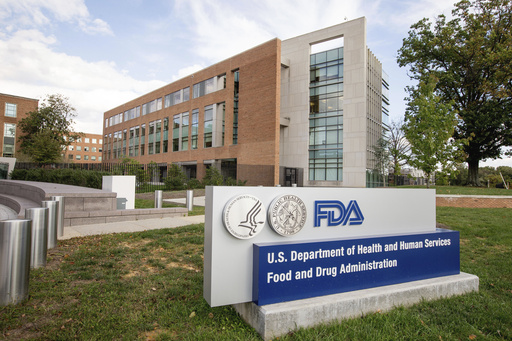In Washington, less than ten days after a series of mass firings at the Food and Drug Administration (FDA), some probationary employees were surprised to learn they were being asked to return to their positions. Beginning late Friday, FDA staffers involved with overseeing sectors like medical devices and food ingredients were informed through calls and emails that their terminations had been “rescinded effective immediately,” as per internal communications reviewed by reporters.
The abrupt reversal reflects the latest episode in President Donald Trump and Elon Musk’s financially-driven management strategy, which has seen various governmental departments initially dismiss staff and then reattempt to rehire those who manage critical services such as national parks and nuclear facilities.
The FDA’s reinstatements occur amidst lobbying by advocates for the medical device industry, which contributes significantly to the agency’s budget with substantial annual payments aimed at employing additional scientists to inspect products. The president of the industry’s main trade organization commented favorably, noting that “a sizable number” of reviewers seems to be making a return. “This is beneficial news, and I am grateful for the administration’s swift action,” the trade organization’s CEO stated. He emphasized the collective goal of ensuring an efficient FDA to streamline the approval process for the medical technologies vital to U.S. patients.
Within the FDA, several groups of medical device reviewers have been reinstated. In the food division, at least ten personnel who assess the safety of new ingredients were offered positions back, according to a staff member speaking anonymously regarding internal matters. Last week, FDA Deputy Commissioner for Foods, Jim Jones, stepped down, criticizing the dismissal of roughly 90 staffers from his area, as outlined in his resignation note.
The precise number of terminations remains unpublished, although estimates from former FDA officials suggest that about 700 employees were affected, with over 220 assigned to the medical device section. This accounts for approximately 10% of staffing in that segment. The FDA has not provided any comments on how many employees are being reinstated.
The terminations primarily affected those in probationary periods, generally spanning the initial two years of federal employment. This tactic led to dismissal of personnel in areas where the agency is striving to increase staff, including innovative fields like digital health. The cuts involved some agency higher-ups brought in for senior roles only recently.
Former FDA device official now consulting, Steve Silverman, remarked that the chaos induced by the extensive firings was counterproductive, generating unintended negative outcomes. He saw the reinstatement effort as a promising acknowledgment of the indispensable expertise these employees hold.
Many FDA reviewers possess advanced qualifications in specialized medical and technological areas and can often command higher salaries in the private sector than government roles offer. Just last week, AdvaMed pushed back against the layoffs, urging Health Secretary Robert F. Kennedy Jr. to reconsider, cautioning that the move would slow approval processes and limit patient treatment options.
The group’s leader highlighted that FDA device reviewers’ hiring is predominantly sustained through a cooperative arrangement between the FDA and medical device firms, contributing substantially to the device center’s budget. Over half of the $791 million budget last year for the device program originated from industry fees, aligned with commitments for timely, predictable application reviews.
Reinstated FDA staff disclosed that their immediate supervisors weren’t pre-informed or provided with explanations concerning the rehiring decisions. Rather, employees were directly notified by the agency’s “Office of Talent Solutions” about the restoration of their computer system and office access.
The communication concluded with appreciation for their continued dedication to serving the public. Merely days before, these employees had received notifications indicating they were not seen as fitting the agency’s current staffing requirements.
FDA’s budget consists largely of fees paid by drug manufacturers, and tobacco and device companies, contributing around $3.3 billion to the overall funding. As such, broad staffing cuts in these areas do not significantly impact Musk’s goal to curtail federal spending.
Interestingly, sectors like the tobacco center, entirely industry-funded, did not see a rehiring attempt for the approximately 100 staff members reportedly terminated.
